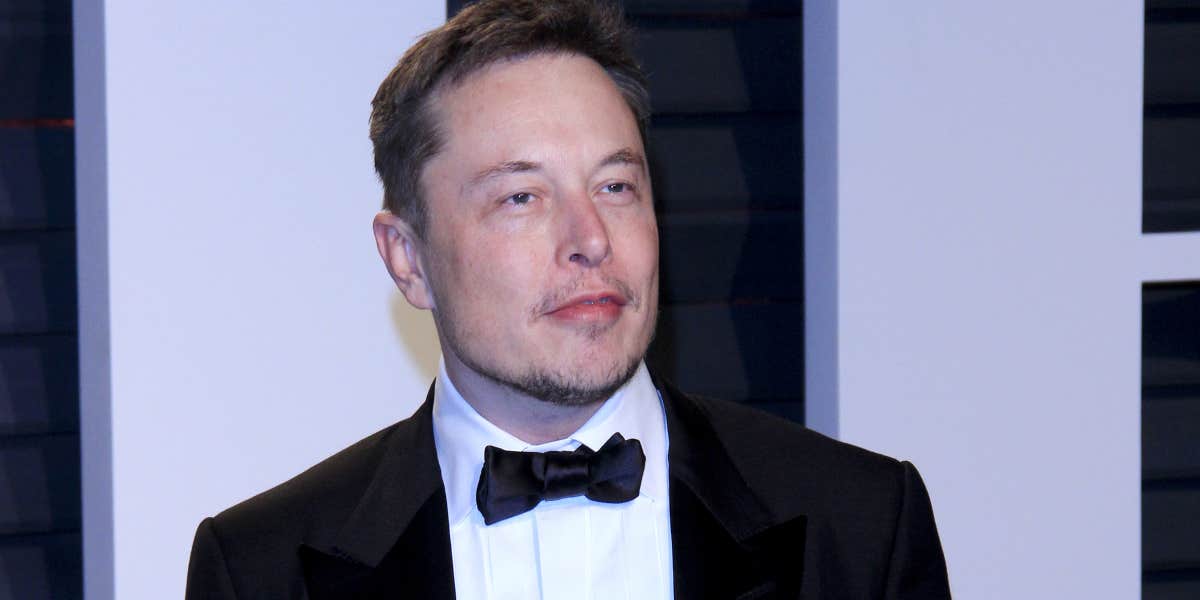Elon Musk's Ex-Wife Says His Claims About His Son's Final Moments Are Not True
She contradicted his story.
 Kathy Hutchins / Shutterstock
Kathy Hutchins / Shutterstock Elon Musk’s takeover of Twitter has brought up some very obvious questions about how his morals and stances will impact the business decisions he makes with Twitter.
On November 20, Musk used his own personal experience to justify his decision to keep Alex Jones off Twitter due to his public conspiracy theories stating that the Sandy Hook shooting was a hoax.
“My firstborn child died in my arms. I felt his last heartbeat,” Musk tweeted. “I have no mercy for anyone who would use the deaths of children for gain, politics or fame.”
Musk's son, Nevada Alexander Musk died at just 10 weeks old in 2002 after a SIDs-related incident.
However, Musk ex-wife, Justine, contradicted his claims about his son's death.
Justine Wilson, who was married to the Tesla founder from 2000 to 2008 and also shares six other children with him, responded to a repost of Musk's response to questions about Jones' reinstatement.
"Not that it matters to anyone except me, because it is one of the most sacred and defining moments of my life, but I was the one who was holding him," she wrote after clarifying that her child died following a "SIDS-related incident that put him on life support."
Wilson discussed the impact her son's death had on her marriage in a bombshell 2021 essay in Marie Claire where she also stated that the infant died in her arms.
"Elon made it clear that he did not want to talk about Nevada's death," she wrote. "I didn't understand this, just as he didn't understand why I grieved openly, which he regarded as 'emotionally manipulative.'"
Musk's justification for banning Alex Jones from Twitter has drawn ire.
While many are in agreement that Jones abused his platform by spreading harmful rhetoric, Musk's unequal application of Twitter bans has become a heated debate.
RELATED: Elon Musk's Leaked Texts With Ex-Wife Threaten To Compromise His Second Attempt At Buying Twitter
The problem is magnified when we begin to look at Musk’s other recent decisions made on Twitter, such as putting up a vote to allow Trump back onto the platform.
If Musk had been the relative of police officer Brian Sicknick who was shot and killed during the January 6th insurrection would his decision-making be different because it is personal to him? The decision to put Trump’s access up for a vote shows how unwilling he is to accommodate other people’s struggles in the same way that he accommodates his own.
Wilson's fact-checking of her ex-husband's claims also betrays another concerning aspect of his leadership — the ability to distort the truth in order to validate his actions.
Musk is entitled to his grief and his lies about the minutiae of his son's final moments don't negate his right to feel personally impacted by Jones' behavior.
To hear both parents talk about their experiences is heartbreaking and made even more so by the public display of their trauma as it relates to Musk’s control over Twitter — a child’s life should not be used so publicly to justify business decisions.
His same rationality is not being used for other users on the platform, such as Vladimir Putin who is being called out by the UN for war crimes or Iranian Supreme leader Ayatollah Ali Khamenei.
We all have stories worth weeping over, and it is important to respect those stories. It is disrespectful to all people using the platform Twitter to say that your own personal woes are worth more in the decision-making of your business than others.
RELATED: 8 Strict Rules Elon Musk Will Allegedly Make His Twitter Employees Follow
Gage Doncaster is a writer who focuses on social justice and humanitarian topics. After graduating magna cum laude from Arizona State University he focused on his own personal writing.
